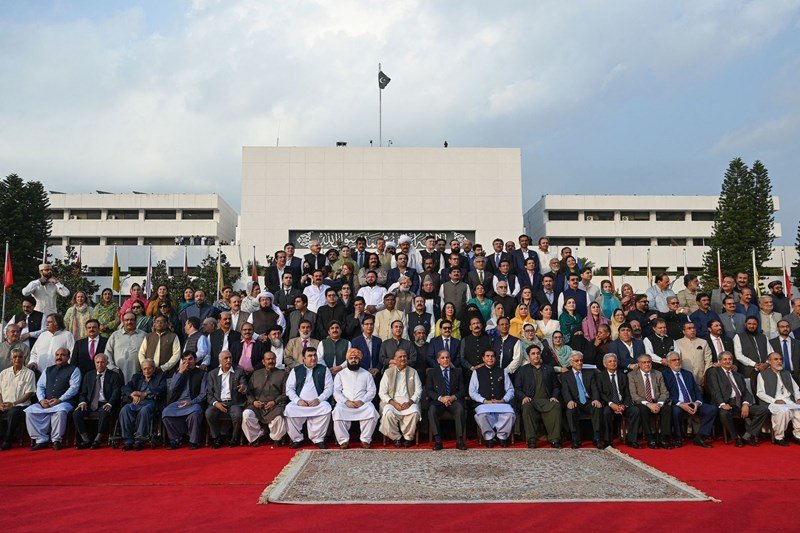The move will usher in a parliamentary election that will exclude the country’s most popular politician Imran Khan who is currently jailed for over 200 charges.
Pakistan’s President Arif Alvi ordered the dissolution of the country’s parliament late on Wednesday, which will allow the caretaker government to usher in elections as its ex-Prermier Iran Khan remains imprisoned.
A statement from the office of Pakistan’s President said he had disbanded parliament following the advice of Prime Minister Shehbaz Sharif, who was quoted saying, “This country cannot progress until we have national unity.”
The decision came three days ahead of the Parliament’s five-year term, which expires on August 12.
According to the constitution, the announcement of the new interim Prime Minister must occur within three days after the dissolution of parliament. Although the law dictates that elections should take place within 90 days of parliament’s dissolution, the departing government has cautioned that a delay is probable.
Notably absent from this election will be Imran Khan, the country’s most widely supported politician. Pakistan has experienced significant political unrest since the removal of Khan from his position of authority in April of the previous year.
This situation reached its climax as he was imprisoned for alleged graft over the weekend, following an extensive crackdown on his political party that had been ongoing for months.
In an unusual collaboration, the typically conflicting dynastic parties of Pakistan, which united to remove Khan from power, have garnered limited popular support while governing the world’s fifth-most populous nation. Meanwhile, the country’s economy remains sluggish. This is due to substantial foreign debt, a sharp rise in inflation, and widespread unemployment due to factories being inactive, as they lack the foreign currency required to purchase raw materials.
“Economic decisions are invariably tough and often unpopular, requiring a government with a longer tenure to effectively implement them,” said Ahmed Bilal Mehboob, president of the Pakistan Institute of Legislative Development and Transparency think tank.
“This election holds significance as it will result in a five-year term for a new government, which ideally should be empowered to make essential decisions vital for economic recovery.”
Imran Khan, who has faced over 200 legal cases recently, asserts that these charges are politically driven, aimed at obstructing his participation in elections. His initial arrest and short detention in May led to several days of occasionally violent protests, marked by an unprecedented level of anger directed toward the military.
The authorities responded with a severe crackdown that effectively quelled his street influence. Numerous of his supporters were apprehended, with some still held in custody to face military tribunals, while a majority of the party’s leaders were arrested or went into hiding. Anticipated to be primarily composed of technocrats, the interim government will confront a challenging undertaking.
Source: Almayadeen



